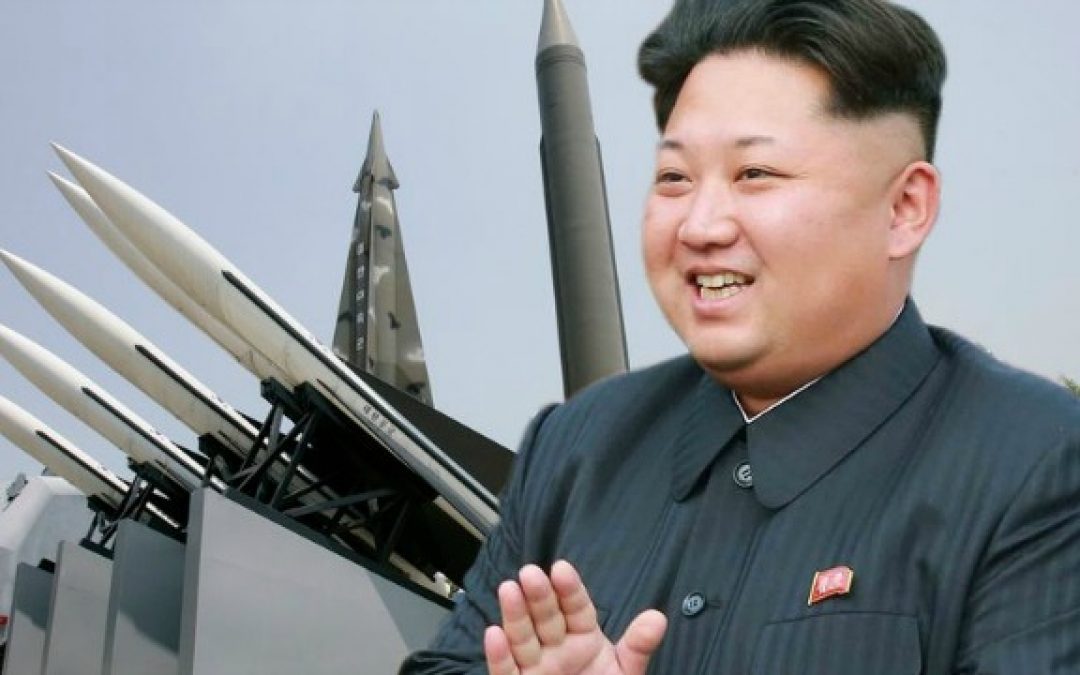North Korea today blew up a liaison office it operated with South Korea and threatened to move troops into the demilitarized zone, dramatically ramping up military tensions on the peninsula as the nuclear-armed regime seeks concessions from Seoul and Washington.
The joint facility in the North Korean border city of Kaesong — which the two sides opened in 2018 as a de facto embassy in the absence of formal diplomatic ties — was demolished shortly before 3 p.m. local time, the South’s Unification Ministry said.
Shortly afterward, as smoke billowed near the heavily defended frontier, North Korea’s state media said the liaison office was “tragically ruined with a terrific explosion.”
The destruction of a rare symbol of cross-border cooperation marked a sharp escalation from Pyongyang, which has sounded an increasingly aggressive tone toward South Korea in recent weeks amid a deadlock in diplomacy with the United States.
Earlier Tuesday, North Korea’s army, one of the world’s largest, signaled its anger with the South by warning that it was ready to move forces back into border zones the two sides had previously agreed to demilitarize.
The regime has also been criticizing plans by defectors in the South to launch pro-democracy leaflets across the border that are intended to promote human rights and undermine the dictatorship of Kim Jong Un.
Demolishing the building was the act of “enraged people” retaliating against “human scum,” Pyongyang’s official Korean Central News Agency said, an apparent reference to the North Korean defectors.
South Korea expressed “severe regret” at the North’s move.
Kim You-geun, first deputy chief of Seoul’s National Security Council, said it “betrayed the hopes of peace on the Korean Peninsula.”
“North Korea will obviously be held accountable for any and all consequences of this incident,” Kim said, adding that the U.S. ally would take strong actions if the North carries out further provocations.
Pyongyang’s recent outbursts have coincided with the elevation of Kim Yo Jong, the leader’s younger sister, to a more public role in the regime, fueling speculation among political analysts that officials are readying her for higher office.
In a statement on Saturday, she labeled the liaison office “useless” and threatened to destroy it “before long,” adding that she had asked the military to prepare a “hostile action” to unnerve the South.
“If the South Korean authorities have now [the] capability and courage to carry out at once the thing they have failed to do for the past two years, why are the north-south relations still in stalemate?” she said
The remarks demonstrated North Korea’s frustration over its inability to win relief from international sanctions after two years of detente and nuclear diplomacy with the United States, including two summits with President Trump.
With its trade still severely curtailed, North Korea has been unable to develop its economy, while South Korea’s center-left government has been unable to move forward with proposals for joint projects that might boost cooperation with its impoverished neighbor, such as cross-border railways.
Leif-Eric Easley, a professor of international studies at Ewha Woman’s University in Seoul, said that North Korea is strategically pressuring the South to try to secure concessions on sanctions.
“It’s hard to see how such behavior will help the Kim regime get what it wants from the world, but clearly such images will be used for domestic propaganda,” Easley said. “So Seoul needs to impose additional costs demonstrating to Pyongyang that its threats are counterproductive.”
Earlier this month, North Korea shut down telephone hotlines with South Korea and threatened to scrap a military agreement unless Seoul stopped the anti-Pyongyang activists.
South Korea’s government said it would ban the activist groups from sending leaflets and asked the police last week to investigate them.
The liaison office, where officials from the two Koreas were able to communicate around-the-clock, had been temporarily closed since January due to concerns over the coronavirus outbreak.
But its destruction is a setback for South Korean leader Moon Jae-in, who has made efforts to coax Pyongyang to give up nuclear weapons and end deep-rooted hostilities between the rival Koreas hallmarks of his presidency.
The two nations have remained technically at war since their 1953 armistice.
“North Korea should not cut off communications, create tensions and go back to the past era of confrontations,” Moon said in a speech on Monday.
The uptick in aggressive behavior from Pyongyang is also unfolding at a time of heightened insecurity in Asia, where China has been forcefully asserting its influence amid concern about the Trump administration’s commitments to long-standing U.S. alliances.
On Monday, Chinese and Indian forces exchanged fire across their disputed border in the Himalayas for the first time in decades, leaving several dead.
China has been ramping up threats against Taiwan, the self-governed democracy that Beijing regards as its own territory, and tightening its grip over Hong Kong.
Chinese Foreign Ministry spokesman Zhao Lijian said today that Beijing hoped for peace and stability on the Korean Peninsula.
